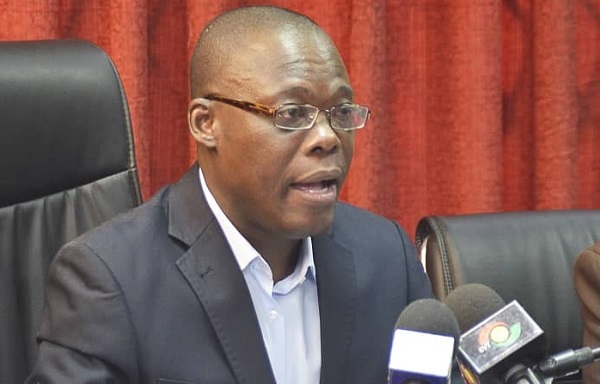The National Democratic Congress (NDC) has opened nominations for its Presidential and Parliamentary aspirants for the 2024 General Election.
A statement issued by Mr Fifi Fiavi Kwetey, the General Secretary of the NDC said the Nomination Forms for Parliamentary aspirants would be accessible to all persons for purchase on the official website of the party; www.ghanandc.com effective 22nd February.
It said Nomination forms for Presidential aspirants could be obtained from the Office of the General Secretary at the Party’s Headquarters at Adabraka, Accra effective 0800 hours from Wednesday, February 22.
The statement said the Functional Executive Committee of the Party had, however, put on hold the opening of nominations for parliamentary primaries in some constituencies.
These constituencies are Ayawaso Central, Amasaman, Afram Plains South, Akwatia, Efutu, Gomoa Central, Amenfi East, Evalue Gwira, Assin North, Pusiga and Tarkwa Nsuaem.
The rest are Ayensuano, Adansi Asokwa, Offinso North, Ahafo Ano North, Sekyere Afram Plains, Ahafo Ano South West (Aduagyman), Bosome Freho, Asante Akim Central, Manso Adubia, Manhyia South, Subin and Fomena.
The statement said the Functional Executive Committee of the Party would in due course announce the date for the opening of nominations in those Constituencies.
Filing fee for its presidential primary has been fixed at GH¢500,000.
The parliamentary primary fee has also been pegged at GH¢40,000.
Furthermore, nomination forms for the presidential and parliamentary primaries are going for GH¢30,000 and GH¢5,000, respectively.
Both the presidential and the parliamentary primaries would be held concurrently on Saturday, May 13, 2023.
It is the final leg of internal elections to elect a flag bearer and 276 Parliamentary Candidates to lead the party into the 2024 election.
Per the timetable, nominations for aspiring parliamentary candidates would open on February 22 to 24 to make room for interested persons to pick nomination forms via the NDC website at a cost of GH¢5000 which must be paid via Mobile Money.
Although nomination for presidential candidates will also commence on February 22 to 24, interested candidates are required to pick nomination forms directly from the office of the General Secretary of the party and pay a fee of GH¢30,000 via banker’s draft.
However, female aspirants and persons with physical disabilities will be required to pay only 50 per cent of the fee charged.
Aspiring presidential and parliamentary candidates will be required to submit the completed forms between March 20 to 22 before vetting will commence on March 27 to 29.
There will also be a window for appeals on the outcome of the vetting process between March 30 to April 6 before the election on May 13.
Interested individuals must be a paid up member of the NDC in good standing and must not be a dual citizen or owe allegiance to any other country aside from Ghana.
With regard to flag bearer aspirants, interested persons must be members of the NDC for at least 10 years and in good standing.
An electoral college will be constituted by the party to elect the flagbearer.
The college will comprise executive members of the party from the branch to the national level.
It will also include Members of the NDC parliamentary group, former MPs who are members of the party, former presidential staffers, former members of the Council of State who are members of the NDC and former Ambassadors who are members of the party.




